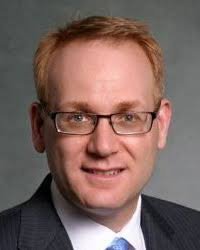Exchange Veteran Bruce Tupper Sees ‘Old Guard’ Coming Around on Crypto
The man who helped Intercontinental Exchange list its first contracts in 2000 sees a new wave of distributed markets changing the industry and wants to ensure customers are protected along the way

In 2000, when Bruce Tupper was just starting as a vice president at Intercontinental Exchange, the joke among traders and brokers was that you could never trade oil futures on the Internet. Of course the pits where traders shouted orders at one another are long gone and the electronic market for crude oil futures is one of the most important in the world.
From the birth of that market, Tupper is now watching as crypto and web3 become more ingrained in Fortune 500 companies and accepted as a culture unto itself. Four years ago, he founded CoinRegTech, which provides regulatory compliance services for the digital assets and virtual currency marketplace. Tupper likes to point out that Sam Bankman-Fried, the founder and chief executive officer of cryptoexchange FTX, is now asked to speak at exchange panels alongside the heads of old guard markets CME Group and Intercontinental Exchange.
“At the end of the day, [distributed ledger technology] is going to change exchange infrastructure and the way the industry works,” he said to me recently. “I’m a big believer of DLT technology but I will caveat that statement very strongly by saying I firmly believe that there needs to be rules to the road” to ensure customers are protected, records are kept and regulatory reporting is in place.
CoinRegTech just signed a 20-year exclusive license to use BroadPeak’s K3 System, which includes “regulatory reporting, global position limits, exchange connectivity, and trade surveillance” capabilities, according to a recent statement. Regulatory pressure is increasing on defi projects and blockchain based markets in general, as the U.S. Securities and Exchange Commission and the Commodity Futures Trading Commission, as well as the Federal Reserve and other government agencies, are taking them more seriously. There’s also the new market effect, as the various regulators jockey to gain jurisdiction.
Pit traders in Chicago Photo by Michael S. Green Credit: AP
The recent implosion of the stablecoin Terra, and the loss of over $40 billion to users, is just the latest example of a big crypto project going down in flames that will no doubt catch regulatory scrutiny.
Tupper, who started his career as a clerk at the New York Mercantile Exchange, is one of a wave of traditional financial professionals who’ve made the jump into crypto. As such, he’s in a good position to judge what his old colleagues are thinking about web3 possibilities.
“All of this industry now matters,” he said. “The old guard has taken note and they’ve been very vocal on a lot of industry panels.” One issue is established players like CME Group won’t sit by as new entrants come in and take marketshare unless those new entrants are made to pay for the same regulatory requirements as they are, Tupper said. But he sees this only going one way.
“We’re at an inflection point,” he said.
CoinRegTech got its start after Tupper left Intercontinental Exchange in 2016. He went to law school (though he’s not a practicing attorney) and then came across a request for public comment in 2017 from the CFTC on whether Bitcoin should be treated as a commodity. He spent three months doing research and filled the letter with his exchange-based perspective and legal analysis. It was a hit, getting more than 5,000 downloads on LinkedIn and leading to many law firms contacting him.
His research also showed him where there was a need in the nascent crypto market. “I couldn’t understand the lack of customer protections,” he told me. “I had this belief early on that most of the tokens that would be set up were what we used to call ‘look-alike swaps,’ they were going to take traditional investments and put them on the blockchain.”
A more modern way to trade Photo courtesy of Unsplash
A key early customer is Oasis Pro Markets, a broker-dealer in digital assets that has to report its activity to the Financial Industry Regulatory Authority, or Finra. Oasis plans to offer tokens that it deems to be securities, Tupper said. “Right out of the gate, these are securities, registering as securities,’ Tupper said. “We handle all their post-trade processing particularly into the Finra repositories.”
After a career that saw him help list the first-ever contracts at Intercontinental Exchange, to creating their global trade repository, Tupper said he’s now invigorated to be diving into crypto and web3.
“Look at me,” he said. “I’ve got new books on the shelf!”


